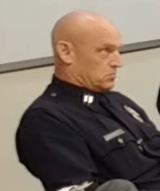
City officials, agency employees, appointees awaiting confirmation by the City Council, and candidates for elected City office shall not misuse or attempt to misuse their positions or prospective positions to create or attempt to create a private advantage or disadvantage, financial or otherwise, for any person.
Here’s what seems to be required of a City official or employee to violate this law:1
- That they misuse their position, where I’m thinking “misuse” means:
- They do something that requires the powers granted to them by virtue of their position and
- their powers were not granted for the purpose of doing that thing.
- The misuse creates a private advantage or disadvantage for someone, where I’m thinking “private” means:
- The advantage or disadvantage created does not further public policy goals. E.g. getting arrested creates a disadvantage for the arrestee, but the disadvantage furthers a public goal. Winning a contract through the City’s bidding process advantages the successful bidder, but the advantage furthers a public goal.
The law is enforced by the City Ethics Commission, although it doesn’t seem to have been used much. There is, e.g., this case from 2010 involving a Fire Inspector who charged money for successful inspections. This is the kind of thing one would expect to fall under this statute. However, there is also one high profile case pending right now which doesn’t seem ordinary at all. It seems quite unexpected. In 2014 LAPD Officer Jim Parker was among those who responded to a sex-in-a-car call involving Daniele Watts and her boyfriend. She accused the police of racism and brutality, and Parker anonymously leaked an audio recording of the incident, which exonerated the police. Subsequently, the Ethics Commission issued a public accusation against Parker for violating LAMC 49.5.5(A) on the theory that leaking the confidential audio recording, which he only had access to by virtue of his position, constituted a misuse which created a private advantage for himself.2
This is very encouraging. It seems that perhaps the Ethics Commission is willing to at least think about a broad application of this seemingly very broad law. And it’s an interesting thing about laws that no one can actually be sure what they mean, what the range of application is, until they’re repeatedly tested in the courts. Well, that’s not exactly right. If a court decides that people of average intelligence can’t be sure at all what the law actually prohibits or requires, they’re likely to toss it out as unconstitutionally vague. But, I guess, if people don’t know exactly what the law prohibits or requires, but average people could have realized that it potentially prohibits what they’re doing or requires what they’re not doing, then it’s not too vague, even if no one actually did realize those things.3 That’s the space I’m interested in exploring with respect to LAMC 49.5.5(A). And because I’m not interested in philosophical explorations any more I’m going to explore this issue by actually turning people in to the CEC to find out what happens, beginning with our old friend, Peter Zarcone. You can read some details after the break, and even get your very own copy of the complaint I sent the Ethics Commission the other day.
Continue reading Announcing Our New LAMC 49.5.5(A) Project: Peter Zarcone And The HPOA Music Festival Fiasco Provide Raw Material For Our First Experimental Attempt At Seeing What This Law Actually Prohibits
